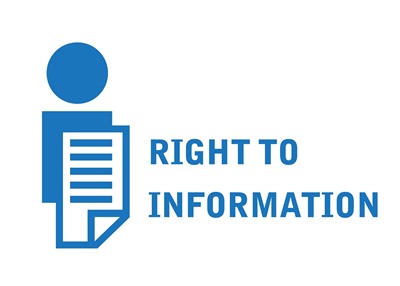
Four law students working together in a group dubbed Whistle for Public Interest (WHIP) have partially succeeded in their writ that had challenged the Delhi High Court RTI Rules 2006 for not confirming to the 2005 Act and rules made under it. They had specifically challenged the following provisions in the high court’s RTI rules:
“a) Exorbitant Fees prescribed under Rule 10 of the Delhi High Court RTI Rules, 2006 i.e. Rs 50 as application fee and Rs 5 per page for obtaining the Photostat/Physical/Xerox Copies.
b) No provision for Supply of Information at free of cost for the citizens falling under Below Poverty Line Category which is a mandatory provision under the main Act to provide free access to information to such citizens.
c) Provision of filing separate applications for each unrelated information as per Rule 3 of the Delhi High Court RTI Rules, 2006.”
The students Aastha Sharma, Ishwin Mehta, Kumar Shanu and Paras Jain appeared in person before chief justice G Rohini and justice Jayant Nath, against advocate Rajiv Bansal for the Delhi high court’s registrar general.
The bench noted in its 20 January order that during the 18 November 2015 hearing in the case, Bansal said that an RTI Committee had, on 2 September 2015, already recommended amendments to the 2006 Rules. Those amendments sought to bring the high court RTI rules in consonance with the 2005 Act and its rules, in terms of the fee and cost provisions pointed out by the writ petitioners.
Bansal submitted on 20 January that the committee’s recommended amendments had already been approved by the Full Court on 18 January.
On the third discrepancy pointed out by the petitioners, i.e. the requirement for separate applications for unrelated questions, the petitioners had argued that there is no enabling provision in the 2005 Act or rules, to allow scope for such a provision in the high court’s rule. The bench stated in its order:
“[…] The contention of the petitioners which does not hold any legal basis is wholly misconceived. As already mentioned, the explanation to Rule 3 requires separate applications only where more than one information which is not related to one another is sought. Apparently, the same is intended to prevent frivolous applications seeking roving inquiries into innumerable subjects. Hence, no amendment is needed to Rule 3 of the High Court rules in this regard.”
The petitioners commented in a press release that they have “decided to challenge [Rule 3] further before Supreme Court of India as the reasoning given by the Bench in sustaining such Rule is neither fulfilling the purpose of the Act nor contemplated by any provision of the Act itself”.
Picture by ytimg